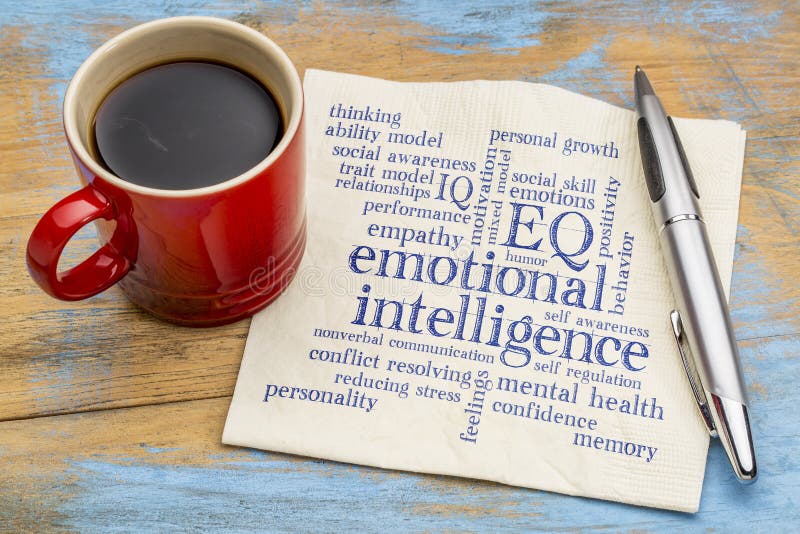
In the intricate tapestry of human connections, emotional intelligence serves as the thread that binds hearts and minds. Understanding and managing emotions, both our own and those of others, is paramount for fostering healthier, more fulfilling relationships. In this exploration, we’ll delve into the key facets of emotional intelligence and unravel practical strategies to cultivate it, enhancing the quality of our interactions and deepening the bonds that define meaningful connections.
Understanding Emotional Intelligence
Emotional intelligence (EI) involves the ability to recognize, understand, and manage our own emotions while also being attuned to the emotions of others. It comprises four primary components:
- Self-awareness: One key element of emotional intelligence is self-awareness, which involves recognizing and understanding one’s own emotions. In the context of relationships, individuals with high emotional intelligence are adept at identifying their feelings, understanding the triggers behind them, and acknowledging how emotions influence their thoughts and behaviors. This self-awareness is a crucial foundation for healthy interactions, as it allows individuals to communicate their needs, express vulnerabilities, and contribute to the overall emotional tone of the relationship.
- Self-regulation: Additionally, self-regulation, another facet of emotional intelligence, plays a vital role in relationship dynamics. It involves the ability to manage and control one’s emotions, particularly in challenging situations. In a relationship, conflicts are inevitable, and how individuals handle these moments significantly impacts the overall health of the partnership. Emotionally intelligent individuals can navigate conflicts more effectively by remaining composed, expressing themselves thoughtfully, and avoiding impulsive reactions that may escalate tension.
- Social awareness: Social awareness, a crucial aspect of emotional intelligence, involves the ability to recognize and understand the emotions of others. In the context of relationships, social awareness plays a pivotal role in fostering effective communication, empathy, and positive interpersonal dynamics.
Emotionally intelligent individuals with strong social awareness are attuned to the non-verbal cues, facial expressions, and body language of those around them. This heightened sensitivity enables them to grasp the emotional support context of a situation, facilitating more nuanced and empathetic responses in their interactions. In relationships, social awareness allows individuals to pick up on subtle signals from their partners, helping them better understand feelings and needs.
- Social skills: Social skills play a crucial role in emotional intelligence, encompassing the ability to navigate social situations adeptly, build positive relationships, and influence others positively. Emotionally intelligent individuals with strong social skills excel in communication, collaboration, and conflict resolution within various interpersonal contexts.
One aspect of social skills involves effective communication. Emotionally intelligent individuals can articulate their thoughts and feelings clearly, listen actively to others, and adapt their communication styles to suit different situations. This facilitates smoother interactions and helps in avoiding misunderstandings, contributing to the overall success of relationships.
The Role of Emotional Intelligence in Relationships
Emotional intelligence is the cornerstone of successful and harmonious relationships. When individuals possess high EI, they are better equipped to navigate the complexities of human emotions, leading to improved communication, empathy, and conflict resolution.
Additionally, self-regulation, another facet of emotional intelligence, plays a vital role in relationship dynamics. It involves the ability to manage and control one’s emotions, particularly in challenging situations. In a relationship, conflicts are inevitable, and how individuals handle these moments significantly impacts the overall health of the partnership. Emotionally intelligent individuals can navigate conflicts more effectively by remaining composed, expressing themselves thoughtfully, and avoiding impulsive reactions that may escalate tension.
Here’s how enhancing emotional intelligence can contribute to the betterment of relationships:
- Improved Communication: High EI enables individuals to express themselves clearly and listen empathetically. This fosters open, honest, and respectful communication, laying the foundation for understanding and connection.
- Deeper Empathy: Understanding the emotions of others is a hallmark of emotional intelligence. Being attuned to your partner’s feelings enhances empathy, creating a stronger emotional bond.
- Conflict Resolution: EI equips individuals with the ability to manage conflicts constructively. By staying calm, expressing emotions thoughtfully, and understanding the perspective of the other person, conflict resolution becomes more effective and less damaging.
- Enhanced Emotional Support: High EI individuals are adept at offering emotional support. They can provide comfort, validation, and understanding during challenging times, strengthening the emotional connection in the relationship.
- Increased Resilience: Emotional intelligence contributes to resilience in the face of relationship challenges. Individuals with strong EI can adapt to changing circumstances, navigate uncertainties, and bounce back from setbacks.
Practical Strategies to Enhance Emotional Intelligence in Relationships
- Develop Self-Awareness:
– Reflection: Regularly reflect on your emotions and their triggers. Identify patterns and themes in your emotional responses.
– Journaling: Maintain a journal to track your emotional experiences, helping you gain insights into your emotional landscape.
- Cultivate Self-Regulation:
– Mindfulness and Meditation: Practice mindfulness to stay present and regulate your emotional responses. Meditation can enhance your ability to remain calm in challenging situations.
– Pause and Reflect: Before reacting impulsively, take a moment to pause and reflect on your emotions. This allows for a more measured and thoughtful response.
- Build Social Awareness:
– Active Listening: Engage in active listening during conversations. Focus on understanding your partner’s emotions and perspectives without immediately formulating your response.
– Empathy Exercises: Put yourself in others’ shoes through empathy exercises. This can include imagining a situation from your partner’s point of view to better understand their feelings.
- Hone Social Skills:
– Effective Communication: Develop clear and assertive communication skills. Express your emotions openly and honestly while being receptive to your partner’s communication.
– Conflict Resolution Training: Learn and practice conflict resolution techniques. This may involve seeking compromise, finding common ground, and avoiding blame.
- Seek Feedback:
– Open Communication with Partner: Foster an environment where both partners feel comfortable providing constructive feedback. This creates an ongoing dialogue for personal and relational growth.
– Professional Support: Consider seeking the guidance of a relationship counselor or therapist. They can offer valuable insights and strategies for enhancing emotional intelligence in the context of your specific relationship.
- Continuous Learning:
– Read Widely: Explore literature on emotional intelligence and relationship dynamics. Understanding theories and practical insights can contribute to ongoing personal development.
– Attend Workshops and Seminars: Participate in workshops or seminars focused on emotional intelligence and relationship skills. These interactive settings provide opportunities for hands-on learning.
Case Study: The Impact of Emotional Intelligence in Real Relationships
Consider the hypothetical scenario of Alex and Taylor, a couple facing communication challenges and frequent misunderstandings. Both partners decide to actively work on improving their emotional intelligence.
– Alex (Self-Awareness): Through regular reflection and journaling, Alex recognizes a tendency to react defensively during disagreements. This newfound self-awareness allows Alex to pause and reconsider responses, leading to more constructive communication.
– Taylor (Social Awareness): Taylor engages in active listening during conversations with Alex, focusing on understanding emotions rather than immediately proposing solutions. This shift enhances Taylor’s social awareness, strengthening the emotional connection between them.
– Both (Effective Communication and Conflict Resolution): The couple attends a communication workshop together, learning techniques for expressing emotions openly and resolving conflicts constructively. This shared experience deepens their understanding of each other’s needs and perspectives.
– Result: Over time, the couple experiences a transformative shift in their relationship dynamics. Improved emotional intelligence leads to more harmonious interactions, increased empathy, and a shared commitment to ongoing personal and relational growth.
Cultivating emotional intelligence is an ongoing journey that transforms not only the way we relate to others but also how we understand and navigate our own emotions.
In relationships, it serves as a beacon, illuminating the path toward deeper connection, effective communication, and lasting fulfillment.
By investing time and effort into enhancing emotional intelligence, individuals can foster relationships that are resilient, empathetic, and rich with mutual understanding. As the threads of emotional intelligence weave through the fabric of our connections, they create a tapestry of love, trust, and enduring happiness.







